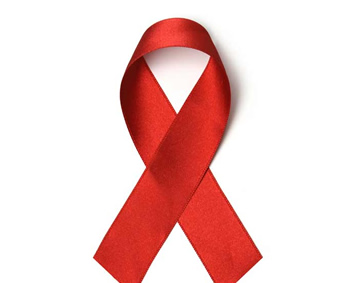The ripples of HIV criminalization laws
 There is no clearer manifestation of the stigma associated with HIV than the multitude of bad laws and policies that punish people living with HIV for acts that would not be a crime if they didn’t know they had the virus.
There is no clearer manifestation of the stigma associated with HIV than the multitude of bad laws and policies that punish people living with HIV for acts that would not be a crime if they didn’t know they had the virus.
Usually, these laws are used to prosecute individuals who are aware that they are living with HIV but allegedly did not disclose their HIV status prior to sex (“HIV non-disclosure”), are perceived to have potentially exposed others to HIV (“HIV exposure”), or are thought to have “criminally” transmitted HIV (“HIV transmission”).
According to our latest data, 68 countries and 98 jurisdictions (including states and provinces) have specific HIV criminalization laws in place. These laws exist in every region of the world.
While the frequency of certain types of discriminatory laws, such as HIV-related travel restrictions, has declined over time, this is not the case for HIV criminalization. In the past several years, countries such as Botswana, Côte d’Ivoire, El Salvador, Uganda and Veracruz state in Mexico have enacted HIV criminalization laws.
In the past two years, at least 228 prosecutions for HIV-related non-disclosure, possible exposure or unintentional transmission have been reported in 39 countries. Notably, more than 40% of such prosecutions occurred in countries without an HIV-specific law or policy, as prosecutors used general criminal or public health laws in such cases.
The frequency of prosecutions has been especially striking among upper middle-income and high-income countries, although prosecutions are also on the rise in eastern Europe / central Asia and sub-Sarahan Africa with prosecutions being reported for the first time in Kenya, Kyrgyzstan, Malawi, Nigeria, Somalia and Tajikistan. Between October 2015 and October 2017, the greatest number of reported prosecutions of people living with HIV occurred (in order) in the United States, Belarus, Russia, Canada, Zimbabwe, United Kingdom, and the Czech Republic.
Ostensibly intended to prevent HIV transmission, these laws and prosecutions cause enormous human suffering without furthering legitimate public health aims. These laws have been used against pregnant or breastfeeding women, healthcare workers living with HIV (see Rosemary Namubiru’s heart-breaking story) and vulnerable, already criminalized people living with HIV found guilty of other “crimes” – notably, but not exclusively, sex workers. Most such laws fail to take account of overwhelming evidence that it is virtually impossible for people who receive successful treatment for HIV to transmit the virus. People living with HIV who spit, or bite, or urinate or sneeze on law enforcement personnel during their arrest or while incarcerated often face enhanced sentencing, even though extensive scientific evidence has demonstrated that these acts cannot lead to HIV transmission.
These laws and prosecutions send people underground, away from services that could offer them dignity, save their lives and improve the public health. Removing these stigmatizing deterrents to service access would also save money. HIV prevention and treatment are cost saving in the long term. Healthy, productive and happy lives make communities, societies and countries richer – economically and culturally.
Grounded in ignorance and prejudice rather than sound scientific evidence, HIV criminalization contributes to misinformation about the consequences of living with HIV and reinforces stigma and discrimination. Manufacturing or exaggerating risks makes it more difficult for public education campaigns to help people understand actual risks and to minimize stigmatizing attitudes.
One of the most worrying aspects of HIV criminalization is the expectation that healthcare workers will function as de facto agents of the state. As many such laws apply to people who are aware of their positive HIV status, a growing body of evidence suggests that fear of prosecution may deter people from getting tested and knowing their status. This deterrent effect is especially pronounced for vulnerable populations at greatest risk of acquiring HIV.
By making personal information grounds for prosecution rather than the basis for delivering lifesaving health services, HIV criminalization also undermines the relationship between people living with HIV and healthcare professionals.
In recent years, some promising signs have emerged on HIV criminalization, including in high-income countries where many such prosecutions have occurred. In 2014, leading scientists in Canada, citing research documenting zero transmission among serodiscordant couples where the HIV-positive partner was receiving antiretroviral therapy, called for an end to overly broad use of criminal statutes to prosecute people living with HIV. This statement was followed by a similar consensus statement by medical experts in Australia in 2016, as well as a notable decline in prosecutions of people living with HIV in Switzerland following an official statement from Swiss health authorities that successful HIV treatment precludes HIV transmission. In all of these cases, sustained efforts by networks of people living with HIV facilitated these positive steps by scientific experts.
Changes in scientific evidence and the increased willingness of HIV scientific leaders to speak out against HIV criminalization statutes must be coupled with strong community advocacy and appropriate support for people affected by the unsound policies and laws that remain on the books. As recent experience in Australia and Canada have demonstrated, lawyers and human rights defenders, along with scientists and clinicians, have the ability to reach the judiciary, parliamentarians, police and other criminal justice system actors.
Despite these favourable developments, many people living with HIV around the world remain vulnerable to the risk of especially unjust prosecutions in relation to their HIV-positive status. Building on our recent progress, diverse actors need to join together to emphasize the essential importance of a human rights framework for the AIDS response. In the case of HIV criminalization, human rights principles and scientific evidence lead to a single conclusion: overly broad and scientifically erroneous HIV criminalization laws must be removed.
By Edwin Bernard, IAS Member and Global Coordinator of the HIV Justice Network
Source: IAS
